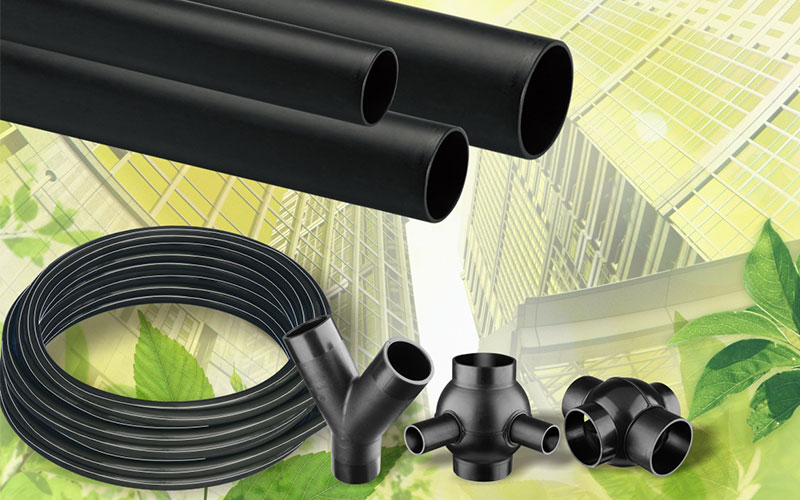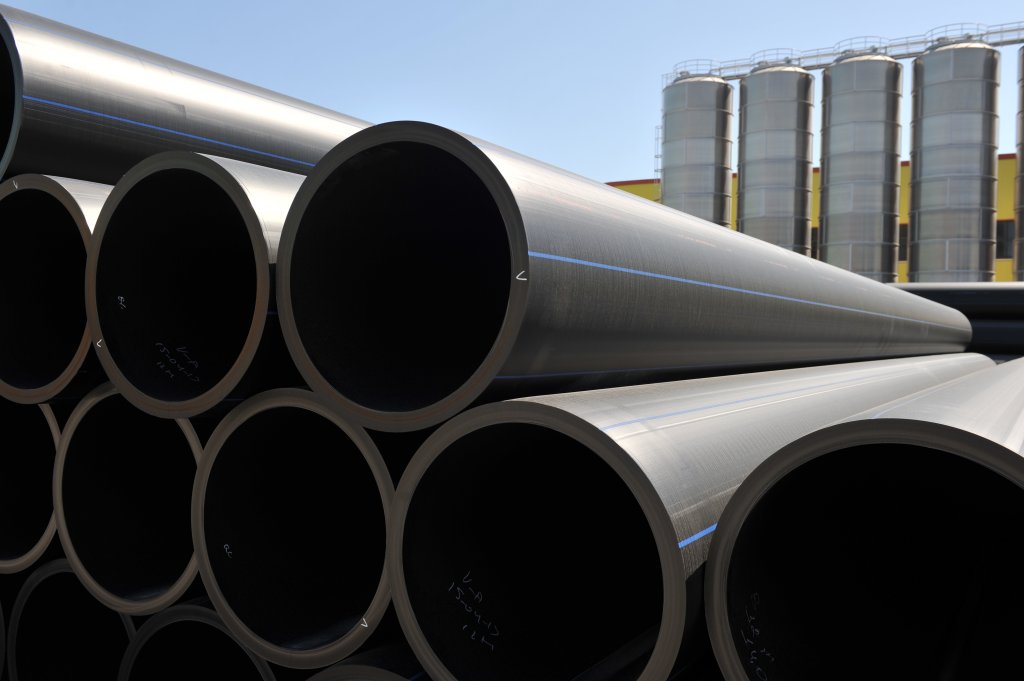Understanding the Trick Benefits of HDPE Pipe for Water and Wastewater Management
The use of HDPE pipeline in water and wastewater administration provides numerous benefits that merit factor to consider. Its outstanding toughness and long life-span make it a favored choice for several jobs. Furthermore, the material's resistance to rust and chemical damages boosts its integrity in different settings. However, the benefits expand past just durability and resistance. Discovering its cost-effectiveness and ecological impact reveals even a lot more compelling factors for its widespread adoption in modern infrastructure
Exceptional Sturdiness and Longevity

HDPE pipe stands apart for its phenomenal longevity and longevity, making it a preferred option in water administration systems. Built from high-density polyethylene, these pipelines can withstand substantial stress and tension, guaranteeing reputable efficiency with time. Their robust nature allows them to withstand extreme ecological conditions, consisting of temperature fluctuations and dirt movements, which can create other products to fall short.
The lifespan of HDPE pipelines often exceeds half a century, giving a cost-effective remedy for communities and sectors alike. Additionally, the product's lightweight buildings streamline setup, reducing labor expenses and durations. This toughness minimizes the demand for constant repair work or replacements, additionally enhancing its economic allure.
In water monitoring applications, the dependability of HDPE pipes indicates fewer interruptions and boosted solution continuity, making them integral to sustainable framework growth. The combination of sturdiness and durability solidifies HDPE's duty as a foundation in reliable water management remedies.

Resistance to Corrosion and Chemical Damage
While several products succumb to rust and chemical damages over time, HDPE pipelines show amazing resistance, making them perfect for different water administration applications. This strength stems from the molecular structure of high-density polyethylene, which is naturally non-reactive and does not corrode like steels or break down from direct exposure to rough chemicals. Consequently, HDPE is highly reliable in environments with aggressive materials, such as wastewater systems that may have acids, bases, and organic solvents.
Furthermore, HDPE pipes can withstand ecological variables such as soil level of acidity and saline problems, additionally improving their viability for varied applications (Midland TX HDPE Pipe Fittings in Stock). Their ability to keep structural integrity gradually minimizes the threat of leakages and failings, which is crucial in making certain the safety and security and reliability of water circulation and wastewater administration systems. Consequently, the resistance to deterioration and chemical damages considerably contributes to the overall effectiveness and durability of HDPE piping options
Cost-Effectiveness and Financial Benefits
When considering the financial ramifications of water administration systems, the cost-effectiveness of HDPE pipelines ends up being noticeable. These pipes provide reduced installation and maintenance expenses contrasted to traditional materials like steel or concrete. Their lightweight nature simplifies transport and installation, leading additional hints to minimized labor expenditures. In addition, HDPE pipelines show a lengthy life expectancy, usually exceeding half a century, which translates to less replacements and lasting cost savings.
The resistance of HDPE to rust and chemical damages lessens the demand for expensive repairs and replacements. The pipelines also support effective water flow, lowering energy expenses associated with pumping systems. By minimizing leaks and water loss, HDPE pipes add to substantial financial advantages for municipalities and industries alike. On the whole, the first investment in HDPE piping can generate substantial economic returns over the life expectancy of the water management system, making it a prudent option for sustainable facilities development.
Ecological Sustainability and Lowered Influence

Convenience and Adaptability in Installment
Due to their unique residential or commercial properties, HDPE pipes provide remarkable versatility and versatility in installment, making them appropriate for a variety of applications. Their light-weight nature enables much easier handling and transport, lowering labor costs and installation time. HDPE pipes can be bent and formed to fit various surfaces and task requirements, which is specifically beneficial in testing settings.
Furthermore, their resistance to deterioration and chemical damages enables setup in varied settings without the need for specialized safety finishes. The ability to fuse joints develops a continuous, leak-free system, enhancing the general integrity and integrity of the installment. HDPE's flexibility additionally suits ground activity, decreasing the risk of damage in locations prone to shifting soil. On the whole, these features make HDPE pipelines not only versatile however additionally a recommended option for water and wastewater management systems.
Frequently Asked Questions
Just How Does HDPE Pipe Compare to PVC in Water Monitoring Applications?
HDPE pipeline uses superior flexibility, resistance to corrosion, and toughness contrasted to PVC. Its lighter weight assists in easier setup, while its lengthy lifespan decreases substitute expenses, making HDPE a preferred choice in water administration applications.
What Is the Life Expectancy of HDPE Pipeline Under Common Problems?
Under common problems, HDPE pipelines can have a life expectancy varying from 50 to 100 years. Their sturdiness and resistance to rust add to their long-lasting performance in different applications, making them a reputable selection for infrastructure.
Are HDPE Pipeline Recyclable After Their Life Span?
Yes, HDPE pipes are recyclable after their service life. hdpe pipe fittings Midland TX. They can be processed and repurposed into brand-new items, greatly copper compression fittings minimizing ecological influence and promoting sustainability within the market, making them an environmentally friendly selection for piping remedies
What Is the Setup Process for HDPE Pipes?
The setup process for HDPE pipes includes site prep work, trenching, pipeline fusion or mechanical joining, backfilling, and pressure screening. Proper strategies guarantee a long lasting and effective system for delivering water and wastewater effectively.
Can HDPE Water Lines Be Used for Both Safe And Clean and Non-Potable Water Equipments?
Yes, HDPE pipelines can be used for both drinkable and non-potable water supply. Their flexibility, durability, and resistance to deterioration make them suitable for numerous applications, guaranteeing secure and efficient transportation of water in various contexts.